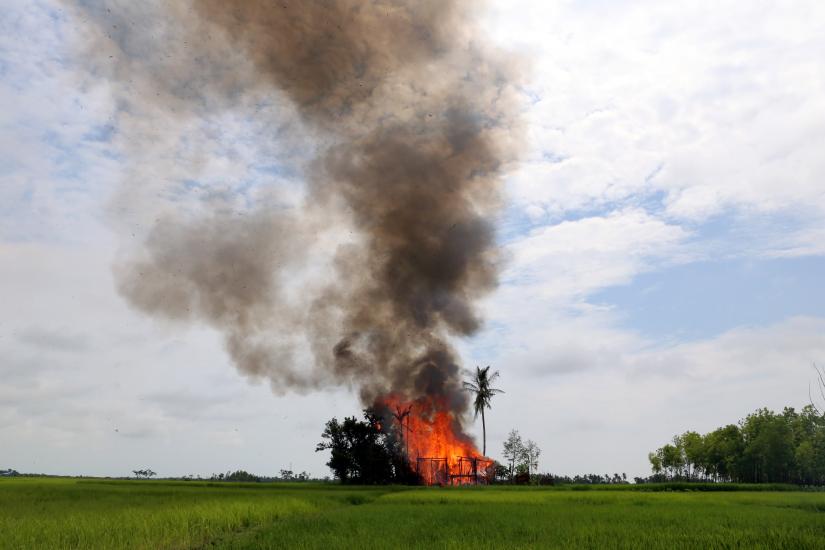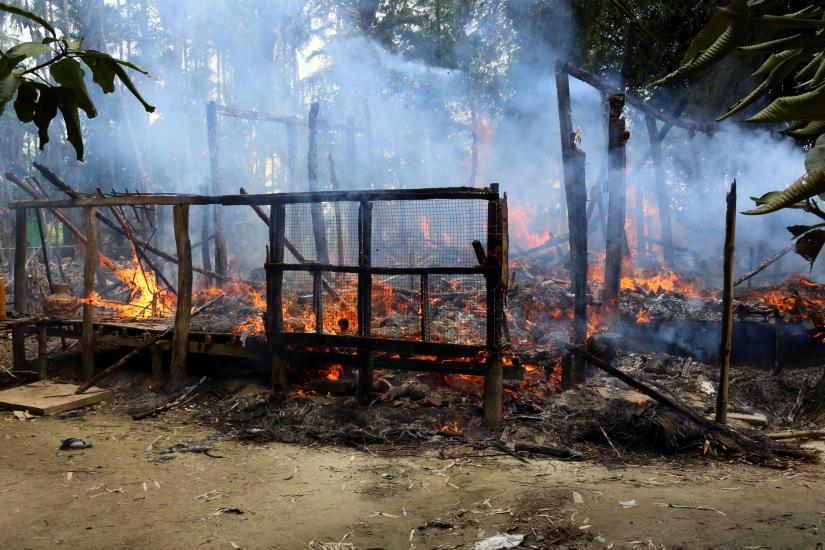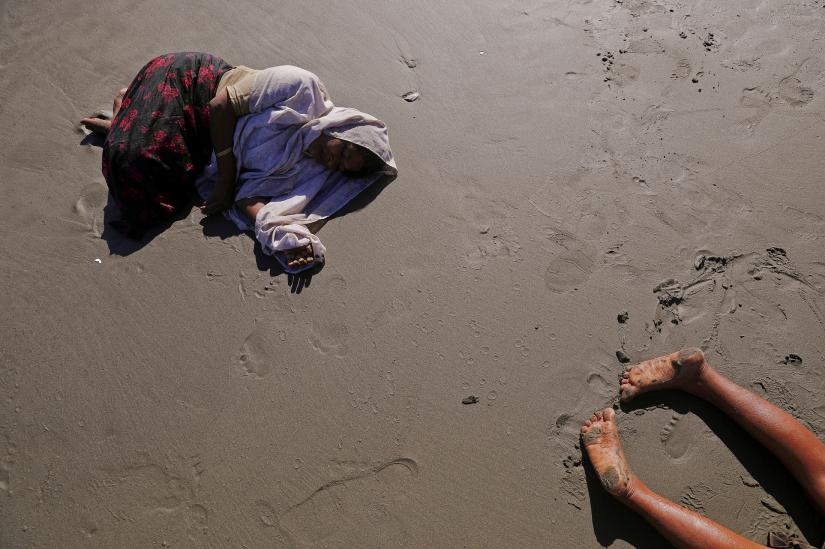 Myanmar resembles Nazi Germany of the 1930’s and its civilian leader Aung Sun Suu Kyi will be held responsible in the international courts for her role in Rohingya genocide, say experts.
Myanmar resembles Nazi Germany of the 1930’s and its civilian leader Aung Sun Suu Kyi will be held responsible in the international courts for her role in Rohingya genocide, say experts.
“Myanmar is neither a democracy nor a state that institutionalizes human rights as new norms for the country,” said Fellow of Genocide Documentation Centre of Cambodia Maung Zarni.
“Even if it were a fledging or struggling democracy-Myanmar resembles Nazi Germany in the 1930’s than any liberal democracy that rests on respect for individuals and groups,” he added.
He is of the view that as the de facto head of state, Suu Kyi is expected to know what international laws are being violated by organs of the state, including the Armed Forces of Myanmar, as well as other security, intelligence and police networks.  “Myanmar is alleged to have commissioned a full-blown genocide against Rohingyas, and genocide is not simply killing millions of people.”
“Myanmar is alleged to have commissioned a full-blown genocide against Rohingyas, and genocide is not simply killing millions of people.”
Zarni pointed out that it is a process of intentional destruction of a targeted victim group and in this process, non-security ministries such as foreign ministry, ministries of education, health, labour, immigration, justice, information and religion - all of whom she has control over as Myanmar State Counsellor.
“That’s why, any future criminal tribunals - ICC or ad hoc tribunal that may be set up by the UN in the future - she is likely to be investigated for her criminal responsibility and culpability,” he said.
About the trial and investigation process, he said Myanmar has verifiably proven to be a major violator of all the rights treaties and conventions - including CEDAW, Child Rights, UDHR, and ultimately the Genocide Convention, and so on.  “Myanmar has been the subject of serious concern, so much so that the United Nations has mandated the appointment of the Special Rapporteur on the situation of human rights since 1993/94.”
“Myanmar has been the subject of serious concern, so much so that the United Nations has mandated the appointment of the Special Rapporteur on the situation of human rights since 1993/94.”
The observations of crimes against humanity, particularly in Rakhine state made in the reports of these Special Rapporteurs (or investigators) have appeared repeatedly, he said.
Subscribing similar views, former Bangladesh Defence attaché in Myanmar Md Shahidul Haque said, Suu Kyi is a politician and she favours the populist views.
Citing example of her Muslim hatred, he said, “In 2012, a group of Muslim leaders went to her house to meet her, but she did not allow them to enter the house.”
He added that even after winning the election, when a Muslim BBC reporter went to take her interview, Suu Kyi commented that had she known the reporter was Muslim, she would not have given the interview. “The powerful group in the country doesn’t believe in democracy.” About the trial at the International Court of Justice next month, he said, “She is going to take a huge risk by leading the Myanmar team in the court.”
About the trial at the International Court of Justice next month, he said, “She is going to take a huge risk by leading the Myanmar team in the court.”
National Defence and Security Council headed by its President is one of the most powerful committees in Myanmar and out of 11 members, six are from army, Shahidul said.
“This NDSC is actually sending her to Hague to defend the atrocities committed by the defence forces,” he said.
 National
National
41274 hour(s) 8 minute(s) ago ;
Afternoon 01:02 ; Wednesday ; Jul 02, 2025
'Myanmar resembles Nazi Germany'
Send
Sheikh Shahariar Zaman
Published : 00:00, Nov 27, 2019 | Updated : 00:00, Nov 27, 2019
Published : 00:00, Nov 27, 2019 | Updated : 00:00, Nov 27, 2019
0 ...0 ...
/st/
Topics: Top StoriesExclusive
- KOICA donates medical supplies to BSMMU
- 5 more flights to take back British nationals to London
- Covid19: Rajarbagh, Mohammadpur worst affected
- Momen joins UN solidarity song over COVID-19 combat
- Covid-19: OIC to hold special meeting
- WFP begins food distribution in Cox’s Bazar
- WFP begins food distribution in Cox’s Bazar
- 290 return home to Australia
- Third charter flight for US citizens to return home
- Dhaka proposes to postpone D8 Summit
Unauthorized use of news, image, information, etc published by Bangla Tribune is punishable by copyright law. Appropriate legal steps will be taken by the management against any person or body that infringes those laws.
Bangla Tribune is one of the most revered online newspapers in Bangladesh, due to its reputation of neutral coverage and incisive analysis.
F R Tower, 8/C Panthapath, Shukrabad, Dhaka-1207 | Phone: 58151324; 58151326, Fax: 58151329 | Mob: 01730794527, 01730794528


